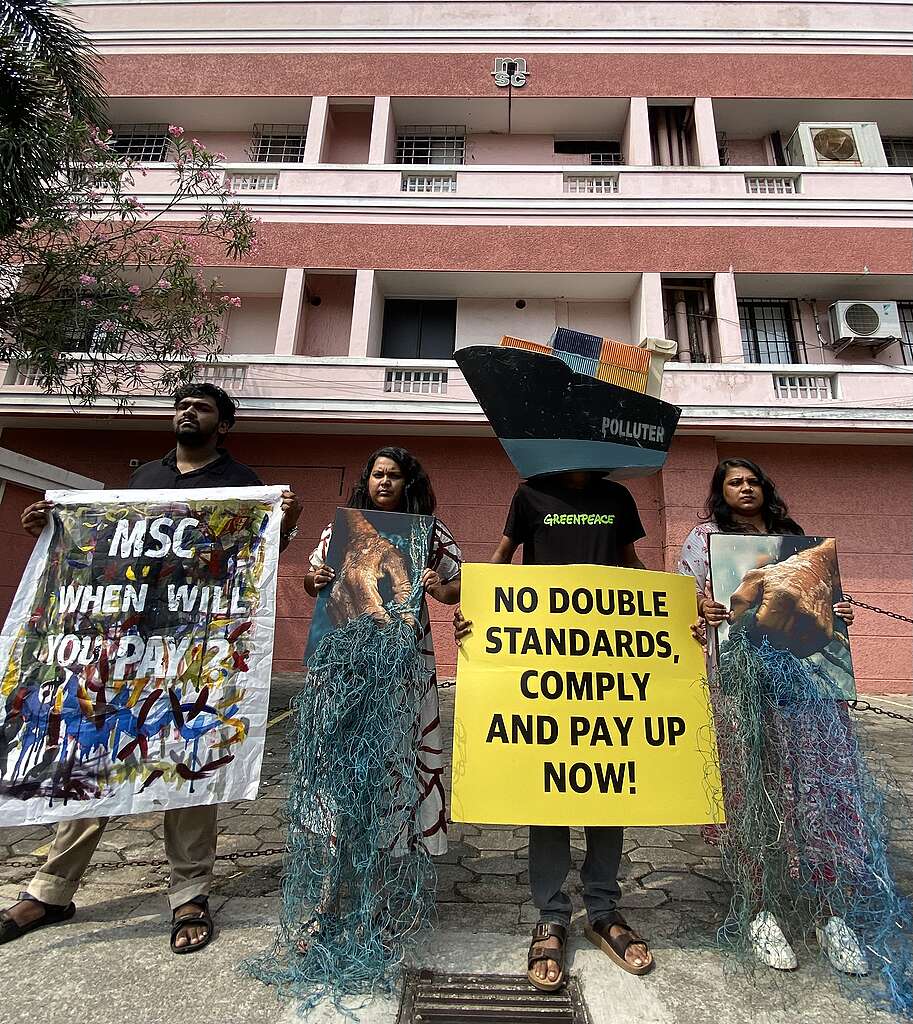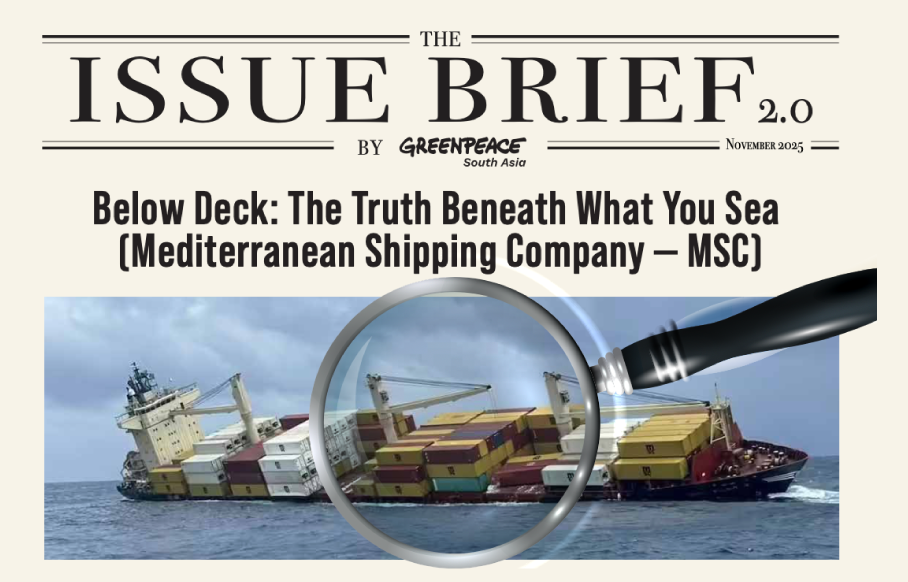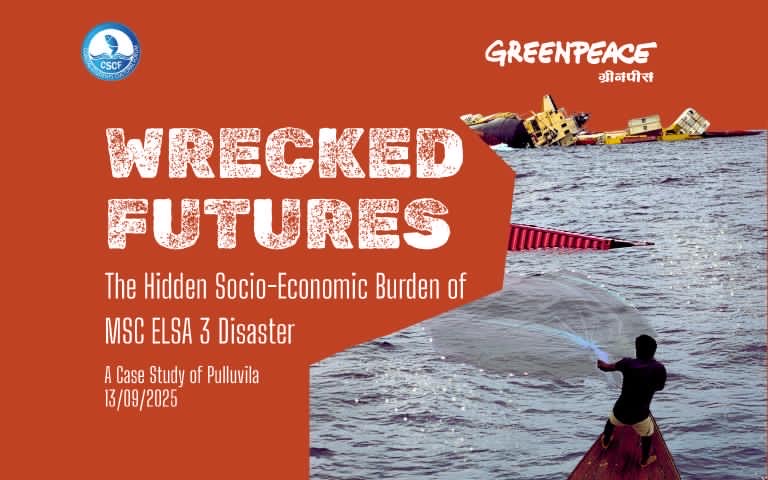Greenpeace South Asia Exposes A Pattern Of Safety Lapses, Environmental Violations, And Liability Avoidance By MSC
The investigative report reveals how MSC’s use of ageing vessels, regulatory loopholes, and flag-of-convenience practices have repeatedly led to environmental accountability shortfalls in South Asia.
Thiruvananthapuram, Kerala, 13 November, 2025: Greenpeace South Asia released a new investigation report, “Below Deck: The Truth Beneath What You Sea (Mediterranean Shipping Company — MSC)”, highlighting a corporate model that contains incident liability and externalizes environmental and social costs onto weaker jurisdictions in the Global South. In light of the systematic gaps noted in the report and the recent MSC ELSA 3 shipwreck disaster off the coast of Kerala, Greenpeace urges MSC to comply with the Kerala High Court’s order directing the company to pay ₹1,227 crore as a compensation security deposit. Meanwhile earlier today, a team of volunteers has finalized the delivery of over 8000 petition and postcard signatures to the MSC office in Kochi, asking the company to pay the compensation for the damages it has caused.
The investigative report traces how MSC became the world’s largest container carrier by expanding rapidly while deploying ageing, second-hand vessels to South Asian routes under flags of convenience, thus reducing costs and limiting incident liability, as part of a double standard pattern that has repeatedly shifted the burden of environmental risk onto developing nations. Besides, the report notes that despite commitments to ‘sustainable recycling’, MSC continues to systematically dispose of ageing ships in South Asian beaching yards, notably in India, but also Bangladesh and Pakistan, where conditions are notoriously hazardous for both workers and the environment.

Recently, MSC also announced plans to reflag 12 vessels under the Indian registry followed by discussions between MSC CEO Søren Toft and Prime Minister Narendra Modi during India Maritime Week 2025. However, Greenpeace notes that such expansion must come with strict compliance to environmental and safety norms, especially given MSC’s recent record of negligence and ecological harm in South Asian waters.
The MSC ELSA 3, a Liberia-flagged vessel with a known history of safety deficiencies, sank off the Kerala coast in May 2025, spilling oil, chemicals, and massive amounts of plastic pellets that devastated marine ecosystems and coastal livelihoods. On 25th September, the Kerala High Court recognized the scale of ecological and economic damage and upheld the detention of another MSC vessel, MSC AKITETA II, until the security compensation deposit is paid.
Greenpeace emphasizes that the company must promptly comply with the court order, and in the meantime, that the Kerala government should act urgently to ensure that compensation funds can reach affected communities as soon as possible, through a transparent and inclusive mechanism. Impacted communities across the affected coastline have already raised concerns over being left out of formal claim processes due to lack of documentation.
“The double standard measures taken by MSC to evade accountability are now clear. This cannot go on in our country,” said Amruta S.N., Climate Campaigner at Greenpeace India. “The Kerala High Court’s order is a landmark step towards corporate liability, but justice will only be real when every affected fishworker and family receives fair compensation. The state must create a decentralized, accessible claims system to ensure that no one is left behind.”
The investigative report’s findings reaffirm a global governance challenge where powerful shipping corporations continue to externalize the social and ecological costs of maritime trade to vulnerable coastal regions. The MSC ELSA 3 case, however, marks a turning point, where legal, civic, and community action could finally hold one of the world’s largest shipping giants accountable.
Please read the investigative report here:
For media inquiries:
Amruta S.N.,
[email protected]
Climate Campaigner at Greenpeace India
Nibedita Saha,
[email protected]
Media Officer, Greenpeace India |


